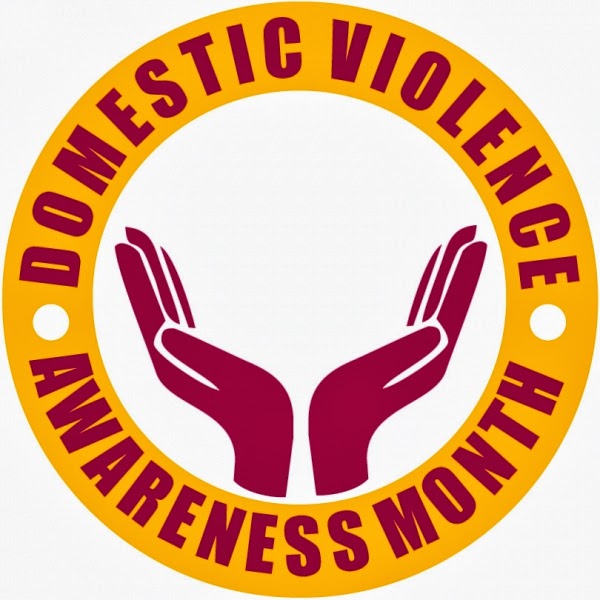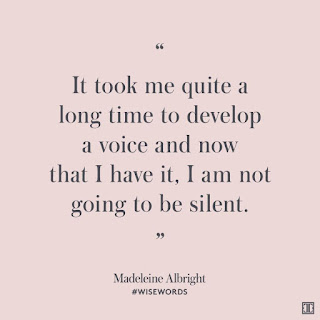Domestic Violence - Peeling Away The Shame, Secrecy & Stigma
Domestic Violence is one of the themes of Awareness for this month. Sometimes, I feel like it is an issue that doesn't get the attention it deserves. Of course, October has other important causes - such as Anti-Bullying and Breast Cancer Awareness - but I also think that it is an issue that we are uncomfortable discussing. It often isn't until an individual has lost her/his life because of it or until a high-profile celebrity makes the headlines because of a domestic violent incident that it captures our attention.
Even though these tragic stories grab our interest for a short period of time, I
Why does this continue to be the case?
First of all, there are many long-held misconceptions that surround Domestic Violence. Let's take a look at a few of them:
1. DV affects only women from low socio-economic and educational backgrounds.This is not true. It crosses all barriers - age, gender, ethnic, racial, cultural, religious, educational, social and economic. No one is immune.
2. DV only affects a small percentage of the population. This is incorrect. According to Domestic Violence Statistics , every 9 seconds in the US a woman is assaulted or beaten. Around the world, at least one in every three women has been beaten, coerced into sex or otherwise abused during her lifetime.
3. Women who are battered deserve to be. Unfortunately, this mindset is quite prevalent as abusers displace their blame so as to avoid responsibility for their actions. Healthy individuals maintain an attitude in which every human being deserves to be treated with respect, dignity and human regard.
4. DV affects only women who are married. This is untrue. DV affects hetero-sexual couples as well as gay and lesbian couples. DV occurs within marriages, partnerships, and friendships.
Another common misconception is that "If a victim really wanted to leave her abuser, she would". This could not be further from the truth. There are personal, financial, spiritual/cultural/religious, and emotional as well as psychological reasons why victims are unable to leave their abusers. (I discuss this point in detail on today's show - link listed below). Most importantly, a female's ability to leave a battering environment is always contingent upon her safety and that of her children.
A final misconception is that "If a victim really wanted help, all she needs to do is call the police." At times, the police can intervene, diffuse the batterer, and in some cases, take the abuser into custody. However, when the victim calls for help (from any source), she immediately puts herself and her children at risk for retaliation and re-injury. And, typically, the degree of abuse increases in severity and lethality.
Because of these misconceptions in conjunction with the different kinds of abuse and the cycle of violence (see link below), victims of DV are not unlike other
Today's show:
Domestic Violence - Peeling Away The Shame, Secrecy & Stigma
Note: In this blog, I have consistently used the female gender is reference to Domestic Violence victimization. It is important to note that males are often referred to as the over-looked victims. As previously stated, tragically, no one is immune.
For more healing tools and resources, please visit Holli Kenley.
Even though these tragic stories grab our interest for a short period of time, I

Shame, Secrecy and Stigma
believe it is hard to look deeper into the topic of Domestic Violence because although we have made strides in its awareness due to the ongoing work of countless individuals and organizations, Domestic Violence remains an issue that is shrouded in shame, secrecy and stigma.
Why does this continue to be the case?
First of all, there are many long-held misconceptions that surround Domestic Violence. Let's take a look at a few of them:
1. DV affects only women from low socio-economic and educational backgrounds.This is not true. It crosses all barriers - age, gender, ethnic, racial, cultural, religious, educational, social and economic. No one is immune.
2. DV only affects a small percentage of the population. This is incorrect. According to Domestic Violence Statistics , every 9 seconds in the US a woman is assaulted or beaten. Around the world, at least one in every three women has been beaten, coerced into sex or otherwise abused during her lifetime.
3. Women who are battered deserve to be. Unfortunately, this mindset is quite prevalent as abusers displace their blame so as to avoid responsibility for their actions. Healthy individuals maintain an attitude in which every human being deserves to be treated with respect, dignity and human regard.
4. DV affects only women who are married. This is untrue. DV affects hetero-sexual couples as well as gay and lesbian couples. DV occurs within marriages, partnerships, and friendships.
Another common misconception is that "If a victim really wanted to leave her abuser, she would". This could not be further from the truth. There are personal, financial, spiritual/cultural/religious, and emotional as well as psychological reasons why victims are unable to leave their abusers. (I discuss this point in detail on today's show - link listed below). Most importantly, a female's ability to leave a battering environment is always contingent upon her safety and that of her children.
A final misconception is that "If a victim really wanted help, all she needs to do is call the police." At times, the police can intervene, diffuse the batterer, and in some cases, take the abuser into custody. However, when the victim calls for help (from any source), she immediately puts herself and her children at risk for retaliation and re-injury. And, typically, the degree of abuse increases in severity and lethality.
Because of these misconceptions in conjunction with the different kinds of abuse and the cycle of violence (see link below), victims of DV are not unlike other

No voice and No choice
victims of abuse and trauma who have experienced or continue to experience deliberate harm or threat of harm.

- They live in constant fear, for themselves and their children.
- They are afraid to report. Even if they do, they may not believed; the authorities may not be able to do anything; and they put themselves at risk for further injury.
- Over time,victims begin to believe that they are to blame; they are at fault; if only they had done things differently; things will be better next time. Victims sense of identity and of self continue to erode, as does their esteem and worth.
- Along with the fear, victims feel tremendous shame and embarrassment - especially as the cycle of violence escalates and intensifies; and if they return to their abusers.
- Victims have no choice and no voice in their situations - therefore they are powerless to change their circumstances. Many live in secrecy and in a state of hopelessness.
In closing, I believe that whenever we look at any behavior that depicts man's inhumanity against man, it is our tendency to want to look away or even excuse it; to say that it is someone else's problem; and/or to judge it as being the manifestation of a lesser people.
When, in fact, with Domestic Violence, it very well could be our own sister, mother, daughter, best friend, co-worker, boss, etc. who is living in violence and who is keeping it secret because of the very stigma and shame imposed upon the victim by us.
Let's work together. Let's keep the conversation going - not just today and not just this month - but whenever we are called to make our voices heard. And, in our own ways, let's be available and present for those who may need us.
More information: National Coalition Against Domestic Violence
1-800 - 799-7233 or 1- 800 -799 - SAFE.
1-800 - 799-7233 or 1- 800 -799 - SAFE.
Today's show:
Domestic Violence - Peeling Away The Shame, Secrecy & Stigma
Note: In this blog, I have consistently used the female gender is reference to Domestic Violence victimization. It is important to note that males are often referred to as the over-looked victims. As previously stated, tragically, no one is immune.
For more healing tools and resources, please visit Holli Kenley.



Comments
Post a Comment